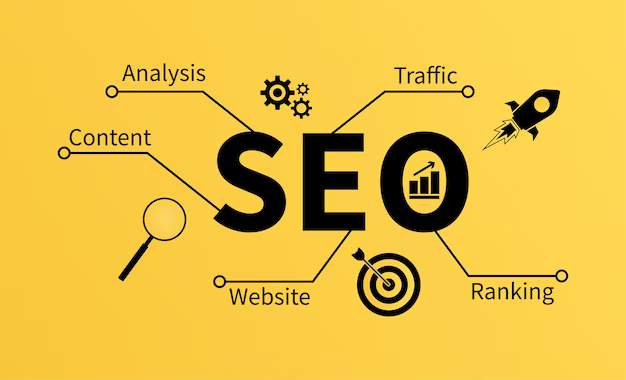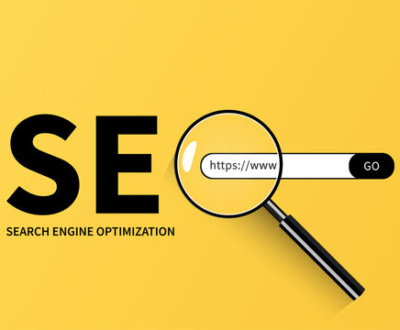Ultimate Guide to SEO Success: 5 Powerful Answers to Common SEO Questions
- September 26, 2024
- SEOschemes Goal
In today’s competitive digital world, mastering SEO success can make or break your online presence. As businesses strive to rank higher on search engines, SEO has become more crucial than ever. In this guide, we’ll answer five of the most common SEO questions to help you on your journey to SEO success and ensure your website gets the traffic it deserves.

What are the benefits of SEO for my business?
SEO offers long-term, compounding benefits. The most important one is increased visibility. Appearing on the first page of Google significantly improves your chances of being found by potential customers, considering that 75% of users don’t scroll past the first page. Here’s how SEO benefits your business:
- Boosts organic traffic: Organic traffic comes from unpaid search results, making it one of the most cost-effective ways to attract visitors.
- Builds credibility: High-ranking websites are seen as more trustworthy, leading to increased brand authority.
- Improves user experience: SEO encourages improvements like faster loading speeds and mobile optimization, enhancing your overall site usability.
- Reaches local customers: Through local SEO, you can attract customers searching for services within your geographical area.
Overall, SEO success translates into better visibility, credibility, and long-term growth.
How can I start doing SEO on my website?
For those just beginning their SEO journey, here’s a simplified guide to get you started:
- Keyword Research: Your first step is identifying the keywords your audience is using. Use tools like Google Keyword Planner and Ahrefs to find high-value keywords that resonate with your target audience.
- On-Page Optimization: Once you’ve identified your keywords, incorporate them into important on-page elements, such as:
- Title tags
- Meta descriptions
- Header tags (H1, H2, H3)
- Image alt texts
Make sure to use keywords naturally to avoid penalties from search engines for keyword stuffing.
- Content Creation: Creating high-quality content that answers user queries is key. Whether it’s blog posts, articles, or guides, aim to be informative and engaging.
- Technical SEO: Ensure your site is optimized for search engines by fixing crawl errors, improving site speed, and ensuring mobile compatibility.
- Link Building: Backlinks from credible sites are one of the most important SEO ranking factors. Build relationships with industry influencers and get reputable backlinks.
By following these steps, you’ll be well on your way to SEO success.
What tools do I need to achieve SEO success?
SEO tools make it easier to monitor, analyze, and improve your efforts. Here are some essential ones:
- Google Analytics: Track traffic and user behavior to understand how visitors interact with your site.
- Google Search Console: Monitor your site’s presence on Google, track keywords, and fix issues.
- Ahrefs or SEMrush: These powerful tools offer insights into keyword rankings, backlink analysis, and competitor strategies.
- Yoast SEO: A must-have plugin for WordPress users, Yoast makes on-page SEO easier by providing real-time suggestions.
- Screaming Frog: This technical SEO tool helps you find and fix errors like broken links and duplicate content.
With these tools, achieving SEO success becomes more manageable.
What are the best practices for SEO success?
Following best practices ensures your SEO efforts are effective. Some key practices include:
- Prioritize User Experience: Google rewards sites that are fast, mobile-friendly, and easy to navigate.
- Create Quality Content: Producing valuable, original content consistently is essential for ranking well.
- Use Keywords Naturally: Avoid keyword stuffing and instead use keywords where they make sense.
- Earn Backlinks: Focus on gaining backlinks from high-authority sites within your industry.
These practices lay the foundation for SEO success and will help improve your rankings over time.
How long does it take to see SEO results?
SEO is a long-term strategy, and patience is required. Results typically start to show after 3 to 6 months. Several factors impact the timeline, such as:
Competition: Ranking for highly competitive keywords takes longer.
Domain Authority: Established sites with more backlinks see results faster than new ones.
Content Quality: High-quality, well-optimized content tends to rank quicker.
The more effort you put into your SEO strategy, the better your SEO success will be in the long run.
Achieving SEO success is a journey, not an overnight fix. By understanding the benefits, taking the right steps, using effective tools, and following best practices, you can set your website up for long-term growth. Remember, SEO takes time, but the rewards—higher visibility, increased traffic, and more conversions—are well worth the effort.
This is author biographical info, that can be used to tell more about you, your iterests, background and experience. You can change it on Admin > Users > Your Profile > Biographical Info page."
About us and this blog
We are a digital marketing company with a focus on helping our customers achieve great results across several key areas.
Request a free quote
We offer professional SEO services that help websites increase their organic search score drastically in order to compete for the highest rankings even when it comes to highly competitive keywords.





